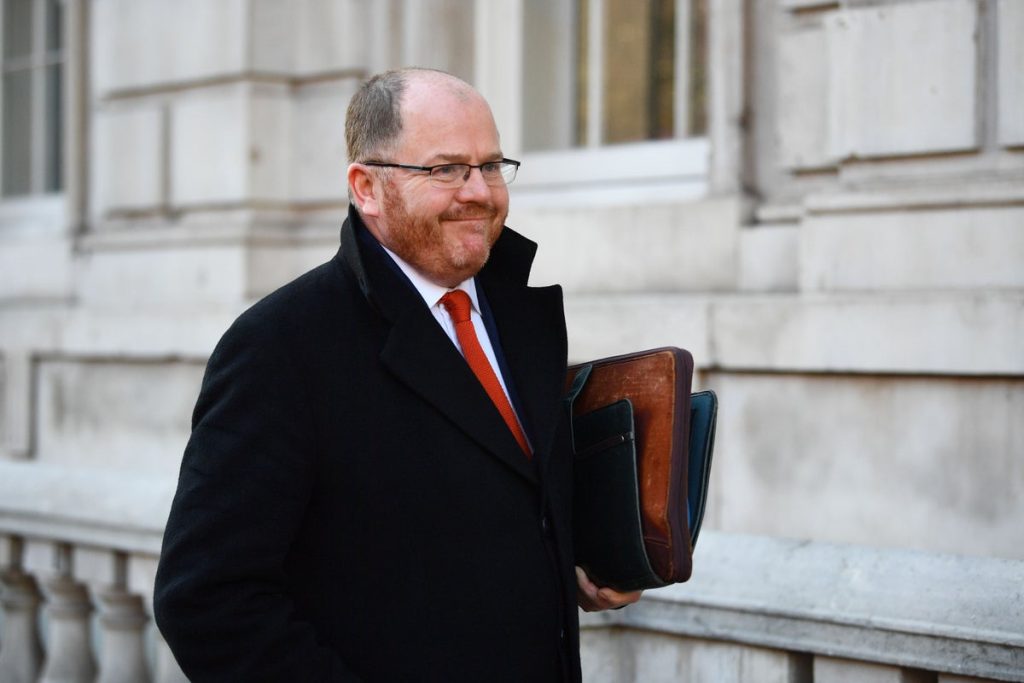Listen to the article
Fact-Checking Organization Highlights Misinformation Spreading Online
The UK’s largest fact-checking charity, Full Fact, has released its latest round-up of misleading claims circulating online, exposing several instances of misinformation that have gained traction on social media platforms.
In a particularly concerning development, an artificial intelligence-generated video falsely showing Conservative MP George Freeman announcing his defection to Reform UK has been widely shared across social media networks. The deceptive clip appears to show Freeman speaking in Westminster, claiming he was “making the biggest decision of my political career” by joining Reform UK after 14 years as a Conservative MP.
Freeman has categorically denied the authenticity of the video, stating on Facebook: “This video is entirely fake and false and I want to make it absolutely clear that I have not left the Conservative Party to join Reform, and have no intention of doing so.” He confirmed reporting the matter to authorities, with Norfolk Police acknowledging they are “in contact with Mr Freeman’s office” regarding the incident.
Analysis of the video revealed its fabricated nature, with fact-checkers matching Freeman’s outfit and background to a genuine YouTube video he posted in April 2020 about the coronavirus pandemic—notably before the Brexit Party rebranded as Reform UK in January 2021. The audio quality in the fake video displays telltale signs of AI generation, including unnaturally even cadence and stiff intonation. The footage also appears to utilize lip-sync deepfake technology to create the illusion of Freeman speaking the fabricated words.
While Conservative MP Danny Kruger did become the first sitting Tory MP to defect to Reform UK in September, following several former Conservative MPs who had already made the switch, Freeman remains a Conservative MP.
In another instance of viral misinformation, false claims that bus pass holders across the UK would need to “re-verify” their passes this October have been circulating on Facebook and TikTok. These claims, which suggest people would need to provide updated proof of age, residency, or disability, have been officially refuted by the Department for Transport, which confirmed to fact-checkers that “the information regarding an announcement in this video is not correct.”
The Local Government Association reinforced this position, stating: “The LGA is not aware of any incoming updates nationally to bus pass restrictions. Councils will always communicate across a variety of channels for any changes to transport.”
The misleading content also suggested new “rush hour limits” would be imposed by some councils, restricting travel during peak times—a claim for which fact-checkers found no supporting evidence. These fabrications appear to be part of a broader pattern of false content about changes to personal freedoms being shared online, often originating from TikTok.
Concerningly, similar misinformation has been amplified by Google’s AI Overview tool, which at one point claimed “New rules effective October 2025 will require stricter proof of age and residency, digital applications will be encouraged, and automatic renewals will be discontinued in some areas.” Google has acknowledged the issue, stating they use such examples “to improve and take appropriate action under our policies.”
The fact-checking organization also highlighted misleading government communications, questioning a recent claim by Home Secretary Shabana Mahmood that the Labour government “has detained and removed over 35,000 people with no right to be here.” According to Home Office statistics, while just over 35,000 immigration returns did take place during Labour’s first year in government, only 9,115 were “enforced returns” that might include detention.
The remaining 25,937 were classified as “voluntary returns,” involving people who left the UK of their own accord, sometimes with Home Office support but in many cases without the government’s involvement or knowledge. When approached about the discrepancy, the Home Office denied the claim was misleading, though fact-checkers have requested further clarification.
These instances highlight the ongoing challenge of combating misinformation in the digital age, particularly as AI technology makes fabricated content increasingly sophisticated and difficult to identify.
Fact Checker
Verify the accuracy of this article using The Disinformation Commission analysis and real-time sources.




8 Comments
Concerning to see this kind of AI-generated misinformation being spread online. Good on the fact-checking organization for exposing the deceptive video and the MP for taking action. We need strong safeguards against the abuse of emerging technologies to undermine trust in our democratic processes.
Agree, it’s crucial that credible institutions and officials proactively address these issues. Rebuilding public trust will be an ongoing challenge as AI capabilities continue advancing.
Glad to see the fact-checking organization swiftly addressing and debunking these false claims. In an age of increasing online misinformation, maintaining public access to credible, evidence-based information is essential for an informed citizenry.
The proliferation of AI-generated misinformation is a troubling development that requires a robust response from authorities and tech platforms. Robust fact-checking, content moderation, and public education will all be crucial to stem the tide of deceptive content online.
Absolutely. Combating AI-enabled disinformation will require a multi-pronged approach, with collaboration between government, tech companies, and civil society. The integrity of our democratic discourse is at stake.
Appreciate the diligent fact-checking work to uncover and debunk these false claims. In an age of information overload, it’s vital that reliable sources cut through the noise and provide the public with accurate, impartial analysis. This helps safeguard the integrity of our political system.
The use of AI to create deceptive political videos is deeply concerning. While the technology holds many promising applications, we must be vigilant about the potential for misuse. Strict guidelines and oversight are needed to prevent such abuses from eroding public trust.
Well said. Proactive steps to address AI-enabled disinformation are crucial, before it becomes an even bigger problem undermining the integrity of our democratic processes.